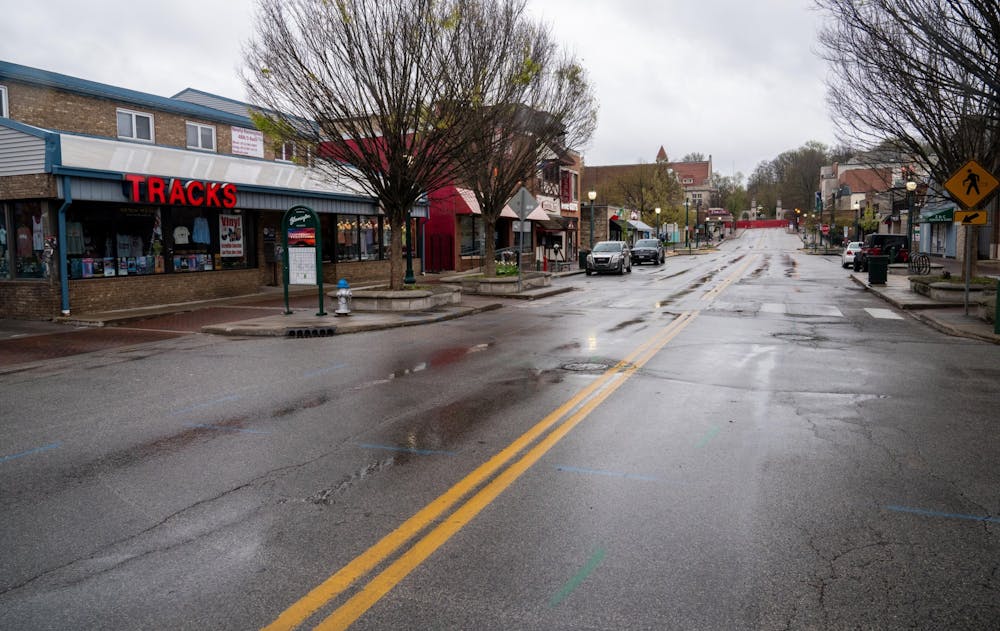Economic difficulties caused by the COVID-19 pandemic will be especially hard on small businesses and the hospitality industry, IU experts said.
Timothy Slaper, research director at the Kelley School of Business’ Research Center, said the unexpected nature of the crisis could dampen the economy's rebound. He said because people weren't prepared for the crisis, people may be scared to start spending money again when businesses reopen.
“The economy didn’t go sideways, it went off a cliff,” Slaper said.
He said that younger restaurants may be at a higher risk of being bought out by larger companies, even if they are normally popular places to eat. A young restaurant may have more debt to pay off than more established ones, which can create problems for them during the pandemic.
Slaper also predicts that small businesses owned by baby boomers could be targets for larger corporations to buy out because the owners may be considering retirement. The owners may not have a turnover plan for their business. Now that nonessential corporations are closing temporarily, it may be easier for them to sell their business to a franchise.
Since it is difficult to predict when the pandemic will end, Slaper said it is hard to predict how long the recovery will take, though he said he is optimistic that we will get back to life as it was before surprisingly quickly once the pandemic subsides.
“At the end of the period the lights will go back on,” Slaper said.
Kelley School of Business assistant professor Andrew Butters said one of the reasons there is so much uncertainty about the economy at this time is because the pandemic began as a biological problem, not an economic problem.
“There’s a real fear right now and a real sense of trying to keep yourself safe,” Butters said.
The economy is in a recession, but until late February it was doing well in terms of unemployment and personal savings rates, which Butters said may help make the economy’s rebound easier.
He thinks one of the things people can do to help during this time is to try to make the pandemic as short-lived as possible by following guidelines from health officials.
Businesses in the hospitality industry will be at the greatest risk because even when stay-at-home orders are lifted, people may continue to fear catching the coronavirus and choose not to take the risk of going out to spend money, Butters said. This could cause the economic results to stretch on for these businesses.
He said businesses are using creative methods to help their employees while still serving their customers. He referenced Allstate insurance offering refunds for driving insurance because fewer people are getting into car accidents as an example.
“We need everyone to feel safe reentering the economy,” Butters said.
Pat Bryan who works at The Tap, a local restaurant and brewery, said that their sales have dropped, but one of the strategies he thinks has been helping them is offering take-out beer.
Bryan said their revenue has dropped from roughly $3,000 a day to about $1,500 a day.
Bryan said that their brand is recognizable, so people continue to get food and beer from them even though they can only offer pick-up and delivery options right now.




